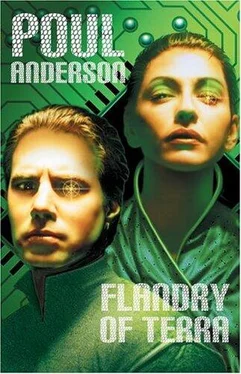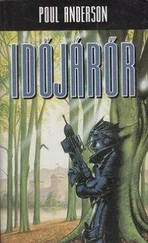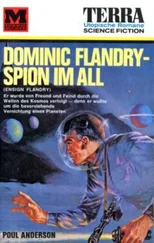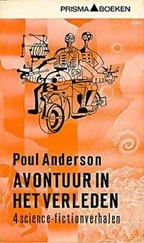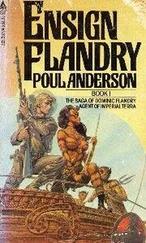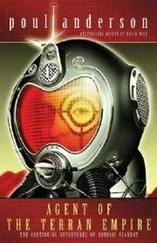Poul Anderson - Flandry of Terra
Здесь есть возможность читать онлайн «Poul Anderson - Flandry of Terra» весь текст электронной книги совершенно бесплатно (целиком полную версию без сокращений). В некоторых случаях можно слушать аудио, скачать через торрент в формате fb2 и присутствует краткое содержание. Год выпуска: 2007, ISBN: 2007, Издательство: iBooks, Жанр: Космическая фантастика, на английском языке. Описание произведения, (предисловие) а так же отзывы посетителей доступны на портале библиотеки ЛибКат.
- Название:Flandry of Terra
- Автор:
- Издательство:iBooks
- Жанр:
- Год:2007
- ISBN:9781596873490
- Рейтинг книги:3 / 5. Голосов: 1
-
Избранное:Добавить в избранное
- Отзывы:
-
Ваша оценка:
- 60
- 1
- 2
- 3
- 4
- 5
Flandry of Terra: краткое содержание, описание и аннотация
Предлагаем к чтению аннотацию, описание, краткое содержание или предисловие (зависит от того, что написал сам автор книги «Flandry of Terra»). Если вы не нашли необходимую информацию о книге — напишите в комментариях, мы постараемся отыскать её.
• The Game of Glory • A Message in Secret • The Plague of Masters First published in 1965.
Flandry of Terra — читать онлайн бесплатно полную книгу (весь текст) целиком
Ниже представлен текст книги, разбитый по страницам. Система сохранения места последней прочитанной страницы, позволяет с удобством читать онлайн бесплатно книгу «Flandry of Terra», без необходимости каждый раз заново искать на чём Вы остановились. Поставьте закладку, и сможете в любой момент перейти на страницу, на которой закончили чтение.
Интервал:
Закладка:
She stubbed out her cigarette. “Not for any of your damned causes!” she snarled. “I don’t care about a hundred million clods, any more than I ever did. It was only… to rescue you, we must have help in Ranau, and those oafs would only help as part of a plot to overthrow Biocontrol. That’s all!”
Kemul hunched his great shoulders, turned around and rumbled, “If you don’t stop baiting her, Terran, Kemul will feed you your own guts.”
“Close your panel,” said Luang.
The giant averted his face again, sucked in a long breath, and slid shut the barrier between him and the others.
Wind lulled around the flyer. Flandry turned off the lights and saw stars on either side. It was almost as if he could reach out and pluck them.
“I’ll answer no more impertinent questions,” said Luang. “Is it not enough that you have gotten your own way?”
He caught her to him and her own question went unanswered.
XIII
Ranau lay on a northeasterly jut of the continent, with Kompong Timur a good thousand kilometers to the southwest. Intervening swamp and mountain, lack of navigable rivers, before all the standoffishness of its people, made it little frequented. A few traders flew in during the year, otherwise the airstrip was hardly used. It was still dark when Flandry’s car set down. Several impassive men with phosphorescent globes to light their way met him, and he was horrified to learn it was ten kilometers’ walk to the nearest dwelling.
“We make no roads under the Trees,” said Tembesi, Djuanda’s father. And that was that.
Dawn came while they were still afoot. As the spectacle grew before him, Flandry’s life added one more occasion of awe.
The ground was low, wet, thickly covered with a soft and intensely green moss-like turf. It sparkled with a million water drops. Fog rolled and streamed, slowly breaking up as the sun climbed. The air was cool, and filled the nostrils with dampness. His tread muffled and upborne by the springy growth, his companions unspeaking and half blurred in the mist, Flandry moved through silence like a dream.
Ahead of him, rising out of a fog bank into clear sky, were the Trees of Ranau.
There were over a thousand, but only a few could be seen at one time. They grew too far apart, a kilometer or more between boles. And they were too big.
Hearing Djuanda tell of them, mentioning an average height of two hundred meters and an estimated average age of ten thousand Terrestrial years, Flandry had imagined the redwoods he knew from home. But this was not Terra. The great Trees were several times as thick in proportion-incredibly massive, organic mountains with roots like foothills. They shot straight up for fifty meters or so, then began to branch, broadest at the bottom, tapering to a spire. The slim higher boughs would each have made a Terran oak; the lowest were forests in themselves, forking again and yet again, the five-pointed leaves (small, delicately serrated, green on top but with a golden underside of nearly mirror brightness) outnumbering the visible stars. Even given the lower gravity of Unan Besar, it was hard to imagine how branches so huge could support their own weight. But they had cores with a strength approximating steel, surrounded by a principal thickness of wood as light as balsa, the whole armored in tough gray bark. Tossing in the gentle winds which prevailed here, the upper leaves reflected sunlight downward off their shiny sides, so that the lower foliage was not shadowed to death.
No matter explanations. When Flandry saw the grove itself, filling the sky, sunlight winking and shivering and running like flame in the crowns, he merely stood and looked. The others respected his need. For long, the whole party remained silent where it was.
When they resumed-passing through a stand of tall frond trees without even noticing-the Terran found tongue once more: “I understand your people are freeholders. That’s rare, isn’t it?”
Tembesi, who was a big stern-faced man, replied slowly: “We are not quite what you think. Early in the history of this planet, it became clear that the free yeoman was doomed. The large plantations were underselling him, so he was driven to subsistence farming, with the price of antitoxin too high for him to afford improvements. Let him have one bad year, and he must sell land to the plantation owner, just to pay for survival. Presently his farm became too small to support him, he fell into the grip of the moneylenders, in the end he was fortunate if he became a tenant rather than a slave.
“Our own ancestors were peasants whose leaders foresaw the loss of land. They sold what they had and moved here. There were certain necessities of survival as free men. First, some means of getting cash for antitoxin and tools. Yet, second, not enough wealth to excite the greed of the great lords, who could always find a pretext to dispossess their inferiors. Third, remoteness from the corruption and violence of the cities, the countryside’s ignorance and poverty. Fourth, mutual helpfulness, so that individual misfortunes would not nibble away the new community as the old had been destroyed.
“These things were found among the Trees.”
And now they left the minor forest and approached the holy grove. It was not as dark under one of the giants as Flandry had expected. The overshadowing roof of leaves twinkled, flashed, glittered, so that sunspecks went dancing among the shades. Small animals scurried out of the way, around the nearest root which heaved its gray wall up from the pseudomoss. Redbreasted fluter birds and golden ketjils darted in and out of the foilage overhead; their song drifted down through a distant, eternal rustle, that was like some huge waterfall heard across many leagues of stillness. Close to a Tree, you had no real sense of its height. It was too enormous: simply there, blocking off half the world. Looking ahead, down the clear shadowy sward, you got a total effect, arched and whispering vaults full of sun, upheld by columns that soared. The forest floor was strewn with tiny white blossoms.
Djuanda turned worshipful eyes from Flandry and said, reddening: “My father, I am ashamed that ever I wished to change this.”
“It was not an ill-meant desire,” said Tembesi. “You were too young to appreciate that three hundred years of tradition must hold more wisdom than any single man.” His gray head inclined to the Terran. “I have yet to offer my thanks for the rescuing of my son, Captain.”
“Oh, forget it,” muttered Flandry. “You helped rescue me, didn’t you?”
“For a selfish purpose. Djuanda, your elders are not quite such doddering old women as you believed. We also want to change the life of the Trees-more than you ever dreamed.”
“By bringing the Terrans!” The boy’s voice cracked loud and exultant across the quiet.
“Well… not exactly,” demurred Flandry. He glanced about at the rest. Eager Djuanda, firm Tembesi, sullen Kemul, unreadable Luang holding his arm… he supposed they could be relied on. The others, though, soft-spoken men with lithe gait and bold gaze, he didn’t know about. ,”Uh, we can’t proceed too openly, or word will get back to Biocontrol.”
“That has been thought of,” said Tembesi. “All whom you see here are of my own Tree-or clan, if you prefer, since each Tree is the home of a single blood-line. I have talked freedom with them for a long time. Most of our folk can be trusted equally well. Timidity, treachery, or indiscretion might make a few dangerous, but they are very few.”
“It only takes one,” humphed Kemul.
“How could a traitor get word to the outside?” replied Tembesi. “The next regular trade caravan is not due for many weeks. I have taken good care that no one will depart this area meanwhile. Our few aircraft are all under guard. To go on foot would require more than thirty days to the next communication center… hence, would be impossible.”
Читать дальшеИнтервал:
Закладка:
Похожие книги на «Flandry of Terra»
Представляем Вашему вниманию похожие книги на «Flandry of Terra» списком для выбора. Мы отобрали схожую по названию и смыслу литературу в надежде предоставить читателям больше вариантов отыскать новые, интересные, ещё непрочитанные произведения.
Обсуждение, отзывы о книге «Flandry of Terra» и просто собственные мнения читателей. Оставьте ваши комментарии, напишите, что Вы думаете о произведении, его смысле или главных героях. Укажите что конкретно понравилось, а что нет, и почему Вы так считаете.
